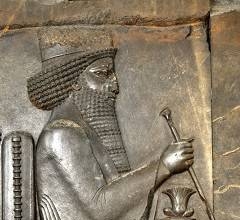Classical sources of history (History) What is ?
Classical sources of history(Part One)Herodotus – 5th century BC – Halicarnassus in Kari country (Turkey today). He wrote general history for the first time in Greek. Although it is possible that there were works written in Greek before him that did not reach us. His works have reached us completely in 9 volumes. The purpose of this book is to understand and analyze the reason for the war between the Greeks and the barbarians (Non-Greeks in a general sense and Iranians in a specific sense) announces. Therefore, he is called the father of history. He has and still has many pros and cons. Especially the Greek historians have slandered him and called him a legend. Even today, historians do not accept his writings except those that are confirmed by archeology. Amir Mahdi Badieh, Iranian historian of the 20th century, his book “Greeks and barbarians” He considered it an answer to Herodotus after 2500 years.
This book was first translated into Farsi by Vahid Mazandarani in the form of summary and excerpt. Then Hadi Hedayati took over the task of translating it completely, but for some reason it did not go beyond 6 volumes, and thus Herodotus, which is perhaps the most important classical source for Achaemenidology and materialism, was never fully translated into Persian until 2009. The year of Asatir Publishing House published this book with the translation of Shadran Morteza Saqib Far.
Wasid – 5th century BC – Athens. He should be considered the second general historian in the Greek language. He was during the time of Ardeshir I and Darius II of Achaemenid “History of the Peloponnesian Wars” He wrote between Athens and Sparta. Thucydides, or as read in Greek, Thucydides, had nothing in common with his time in terms of his historical writing style and his customary, secular and scientific vision.. He was probably saying it for the first time “The fate of wars and politics has nothing to do with God's destiny and will, and humans create history by themselves.” This vision was not recognized until a millennium later, and most historians believed in some form of divine predestination.. Unlike Herodotus, Thucydides did not write the history of Iran, but he has scattered references to Iran, which should be preferred if there is a contradiction with Herodotus' statements.. This book was translated into Farsi by Mohammad Hassan Lotfi and published by Kharazmi Publications.
Kitsias – 5th and 4th century BC – work (Turkey today). He claims to be the court physician of the Achaemenid king (Darius II and Ardashir II) Was. He has books called Persika and Indica about Iran and India. He claims that he wrote these books based on the divan annals of the Iranian court. His books have been lost and have not been found. But other Greek writers such as Diodorus, Plutarch, and Photius have quoted him for a long time. Ctesias' statements about the pre-Achaemenid period remain a legend, and his statements about Cyrus, Darius, and Xerxes also contradict Herodotus.. However, many researchers consider Katsiyas a good source for the events of the era of Darius II and Ardashir II (The era after Herodotus) they know. In fact, Katsias is used in cases where other historians have remained silent and is generally less reliable.. Diakonov rejects his claim to know the Persian language.
His reconstructed book was translated from English to Farsi by Fereydoun Majlesi and published by Tehran’ has published.
The summary of Photius, which is a book by this author and a retelling of Ctesias, was also translated into Persian by Zaheed Khalili and published by Karang Publications..





